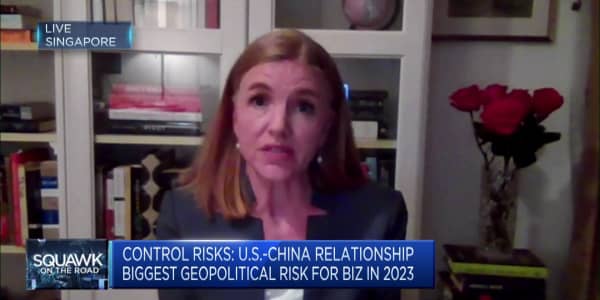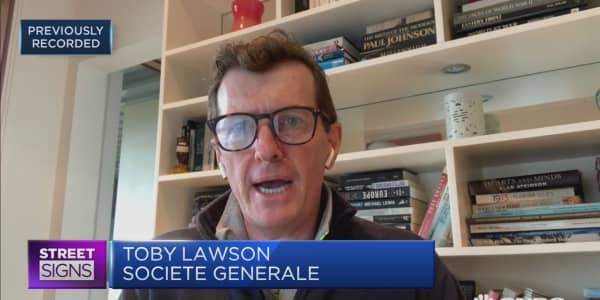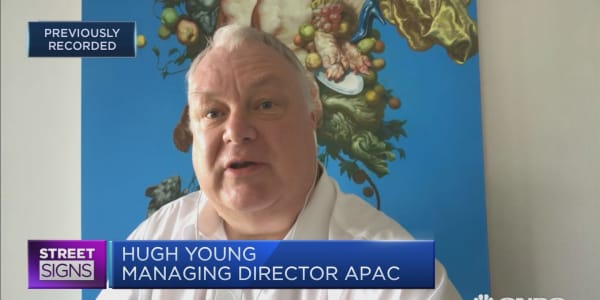The euro zone is in danger of its third recession since 2008, despite recent better-than-expected economic data, according to Jean-Michel Six, Standard & Poor's chief EMEA economist.
"Risks of a triple-dip recession have risen," Six told journalists at a briefing in London on Tuesday.
The euro area has suffered two recessions in quick succession—one in 2009 and another in 2012-2013—constituting the so-called double-dip recession.
Six noted that the economic rebound which begun in the second quarter of 2013 had already peaked, and that growth would now stabilize around the flatline.
"We will probably avoid a triple-dip recession, but it will be a near-miss," the Paris-based economist said.
Read MoreCentral banks: The new gold bugs?
Data on Friday showed the euro zone economy grew by a meagre 0.2 percent in the third quarter —just above the 0.1 percent forecast. Serious concerns about the region's economic health remain, particularly with regards to high unemployment and very low inflation.
Six said that unless the European Central Bank (ECB) initiated sovereign bond purchases, "the risk of recession is very considerable." The ECB has already announced plans to purchases covered bonds and asset-backed securities (ABS), but there are calls for the bank to go further and buy sovereign bonds, in the style of the U.S. Federal Reserve, the Bank of England and the Bank of Japan.
Hopes for so-called full-blown quantitative easing by the ECB were stoked by dovish words from ECB President Mario Draghi. On Monday, he reiterated the bank's commitment to using "additional unconventional instruments if needed," before explaining that these measures might entail the purchase of sovereign bonds.
Read MoreECB's Draghi: Buying sovereign bonds is an option
On Tuesday, Six said that his "base case" was for quantitative easing to start next year.
"We are moving into very dangerous territory, with the ECB's reputation on the line as it takes more and more risks… I hasten to add that this is probably necessary," he said.
Read MoreNo recession in 2015, but no growth either: BofA
On balance, he said that the euro zone was likely to avoid recession in 2015 and early 2016, boosted by the decline in oil prices, of which Europe is a net importer.
"Around 10 euros ($12.5) per full tank is being saved when we fill up our cars, thanks to falling oil prices," Six said.




